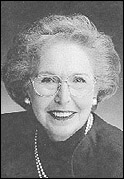on campus
of course
The Art of Listening
 ILLUSTRATION: Tzigane
ILLUSTRATION: Tzigane |
|
They come in, many of them, not knowing their Bach from their Brahms.
They leave, many of them, stocking their CD collections with some Wagner and Verdi to accompany their Radiohead, Moby and U2 albums.
"I hope we're teaching the classical music concert goers of the future," says music history professor Julie Cumming.
She's talking about the arts and science students who take "The Art of Listening," a course designed to give those not schooled in classical music a crash course in the music's rich history and texture.
Cumming knows that plenty of teens and twentysomethings haven't had much exposure to classical music.
"It's just as important as gaining an appreciation for literature or art, but it's less likely that students have had an opportunity to study Western classical music in the same way."
Cumming is the course's coordinator, overseeing the work of the PhD music students who teach the class as well as doing much of the teaching herself.
"People tend to put on music and switch off their brains. We want them to listen in an active way. We establish a vocabulary for talking about music."
Over the course of a semester, as they listen to recordings spanning the Middle Ages to the 20th century, students learn to identify a meter, to categorize genres and to classify shifting patterns in orchestral compositions.
Students in the course have to go to two classical music concerts. They write reports comparing two of the pieces performed and describing what the concert experience was like as a whole.
With about five sections offered each year and about 1,000 students attending them, "The Art of Listening" is one of McGill's most popular courses.
But it's also the Rodney Dangerfield of classes. It doesn't always get a lot of respect. The student press sometimes derides the class as "Clapping for Credit."
Cumming shrugs such comments off. "It's not a terribly difficult class, but students do have to work to do well.
"They really do have to know their pieces. On the final exam, we'll play a bit from the middle of a Beethoven symphony and they not only have to identify the piece, but say where we are in the piece. We might play something from the second act of an opera and they'll have to describe what's going on."
Philosophy student Ben Williams counts himself as one fan of the course. He knew little about classical music going in.
"It was eye-opening. I discovered that some classical music really appealed to me." Without the course, "I probably wouldn't have made the effort to find out."
Supper with Sheila
 "Person of the Year" Sheila Finestone
"Person of the Year" Sheila Finestone |
|
Sheila Finestone can soon add "Person of the Year" to her long list of credentials. A member of the Senate of Canada and a McGill alumna (BSc'47), Finestone is receiving the honour from McGill's Centre for Research and Teaching on Women (MCRTW) in March.
The distinction was recently created by the MCRTW as a way of recognizing those who have shown a sustained commitment to women's causes locally, nationally or internationally.
So why person and not woman of the year? "It's a way of recognizing that it's not only women who work to advance women's rights, but men too," says MCRTW director Shree Mulay.
A fixture in federal politics, Finestone may best be known for her role as Liberal MP for the Town of Mount Royal. It was through this position, held from 1984 to 1997, that she worked towards the protection and promotion of equal rights for women and members of minority groups throughout Canada.
In selecting a candidate as its first Person of the Year, the MCRTW was looking for someone who displays leadership qualities, acts as a catalyst for change, is known for innovation and creativity, has links with McGill women and, ideally, has not already been recognized for his or her contribution to the cause of women.
An important aspect of the Person of the Year award is that it will also benefit students, since the MCRTW will be holding a $325 per plate gala soirée at the University Club on March 7, to both honour Finestone and collect funds to endow a scholarship in her name. Come fall 2001, one McGill student per year will receive a $1,000 Sheila Finestone scholarship to study at the MCRTW.
For more information on the centre or its gala event, please call 398-3911.
A Fairy Tale
 |
|
Young love is complicated enough for mere mortals, but if the damsel is the ward of a powerful politician determined to marry her off to a member of the House of Lords, it's even harder. If your mother is the Queen of the Fairies, it becomes impossible -- and delightfully improbable.
So goes Gilbert and Sullivan's Iolanthe or The Peer and the Peri, being staged as this year's Savoy Society production. The Victorian musical comedy should provide a welcome distraction from the winter blues.
"The unofficial Savoy mandate is for the audience to have a really good time. It's a feast for the eyes and the ears," said director Paul Vandenburg, a recent music grad. "There's dancing and singing, and costumes... It's truly a spectacle."
The society has been producing Gilbert and Sullivan operettas at McGill for 36 years and has involved hundreds of students. Iolanthe (pronounced eye-o-lan-thee), for instance, required the work of about 70 students.
"It takes a lot of time. We select the show in April, and the production team starts working on it over the summer. We start rehearsing three to four times a week starting in October, so it's a really big time commitment," said Savoy president Zosia Bornik, a student in environmental studies. She stresses that though the cast and crew are volunteers, the audience is given a high standard of theatre.
"Since the beginning of the society, we've gone from a revue to a semi-professional show that draws over 4,000 people," said Bornik. The society has a budget of $23,000, much of which comes from donations and fundraisers.
The show runs March 1-3, 8-10, 15-17, 8 pm, 2pm on the 10th and 17th, Moyse Hall, Arts Building. Tickets are $12/$8 students and seniors ($10/6 for matinees) and may be reserved at www.savoy.ca or 398-3001, ext. 09632.
Europe calling
 |
|
Looking for a partner in Europe? Jorma Routti may have some suggestions.
Part match-maker, part strategist for developing collaborative projects with European researchers and all-round internationalist, the visiting professor will be spending two months briefing McGill researchers on research and development opportunities with the Old World.
For the Old World is very active in the new economy. Nokia, Europe's "most valuable company," for instance, isn't Japanese as some assume, it's Finnish, notes Routti, a Finn himself and former president of SITRA, the Finnish National Fund for Research and Development, a think tank linking research to policy-making, industry and venture capital. A physicist by training, and former professor at the Helsinki University of Technology, Routti's most recent position was as director general of the European Commission's Research Directorate, during which time he chaired the Canada-EU Science Committee.
Invited by Vice-Principal (Academic) Luc Vinet to help McGill researchers take advantage of collaborations with their European counterparts, Routti, who just arrived last week, has already met with members of the Office for Technology Transfer, the Faculty of Management and the Music, Media and Technology Program, and welcomes calls from any researchers. Alex Navarre, director of OTT, says Routti "can point us in the right direction and share his understandings of the mechanisms in Europe."
On March 13, Routti will lead a day-long workshop on Canada-EU Research Relations which will cover such topics as Internet information on EU opportunities and Euorpe's research priorities.
Among the 23 key areas identified by the EU, he says, are global change, including the socio-economic and environmental impacts, telecommunications, genetically modified organisms, viral diseases and human genome mapping.
Professor Routti may be contacted at jroutti@ums1.lan.mcgill.ca or 398-8929. For information on the conference, phone Dawn Conway, director of the Office of International Research, 398-4197.

